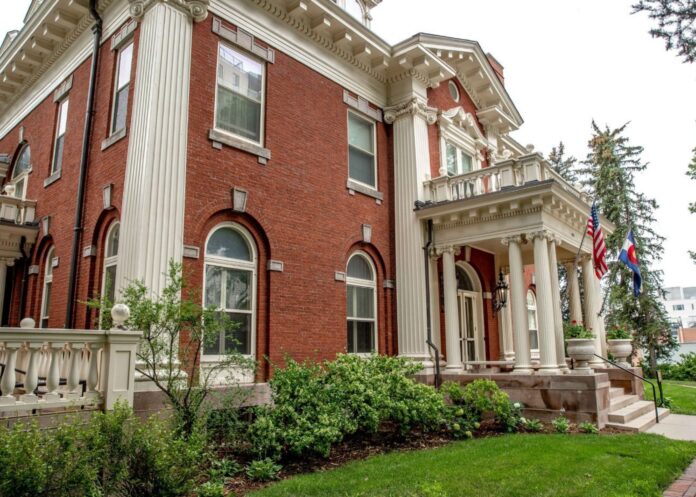
A case currently being heard in district court has the potential to radically change the campaign finance landscape for statewide political candidates in Colorado.
The case, Lopez v. Griswold, was brought in 2022 by former gubernatorial candidate Greg Lopez, state Sen. Rod Pelton and campaign donor Steve House.
Currently, Colorado has some of the lowest individual contribution limits in the country for candidates for the governor and Colorado General Assembly, at $625 and $200 per election, respectively. That limit was set by Colorado voters in 2002 with Colorado Amendment 27, which passed with over 66% of voters in support.
Representing Lopez, Pelton and House in the case are the Institute for Free Speech and Advance Colorado.
Ryan Morrison, an attorney at the Institute for Free Speech and the lead litigator on the case, told Law Week he got involved in the case in late 2022. He noted that they were challenging the law on First Amendment grounds.
Morrison thinks they have a strong case, and he cited a prior case in Vermont that went before the U.S. Supreme Court as an analog, Randall v. Sorrell.
In that case, the Supreme Court held that the contribution limits of the Vermont law violated the First Amendment.
Originally, the case was filed with the intent to get relief for the plaintiffs for the 2022 election, but as it stands, it’s unlikely the case will be decided before the 2024 election.
But what happens for the following election if Morrison’s side wins is unclear.
“We thought if the constitutional law goes away, then the old state statute would get revived,” said Morrison. “But in a short conversation with government counsel, they were not sure that would happen.”
Morrison hopes that the case will cause states around the country to reconsider campaign finance laws.
“I get people’s initial reaction, that ‘All this money in politics, it can’t be a good thing,’ it makes you feel icky, I get it,” said Morrison. “But we also have to remember that all of these things we care about as a nation with speech, especially political speech, it costs money to do it… And it’s not the case that the person with the most money wins, but it kind of is the case that if you do not have it, it’s almost impossible to win.”
On the other side, Colorado Common Cause filed an amicus brief in support of the government’s position.
Martha Tierney, founder and partner at Tierney Lawrence Stiles and board chair at Common Cause, told Law Week via email that Common Cause was a primary proponent of Amendment 27 and has defended it in courts since its passage.
“CCC contends that under the existing contribution limits, candidates can raise sufficient money to get their message out to voters,” said Tierney. “CCC fought the imposition of a preliminary injunction because it believed that the court needed a trial to hear evidence about how [Colorado’s] limits did not significantly restrict the ability of candidates, including challenger candidates, to run competitive campaigns, how the limits for political parties are different than for candidates, that the limits are adjusted for inflation, that volunteer services are not treated as campaign contributions and that the people of the state of [Colorado] adopted the limits in Amendment 27 to limit corruption and the appearance of corruption, not because they wanted to protect incumbents.”
If the case succeeds, Tierney said that Colorado would have no enforceable individual contribution limits for gubernatorial or General Assembly candidates until the legislature adopts new ones or another ballot initiative passes.
“Until new contribution limits are adopted, [Colorado] will see unlimited candidate contributions which will further fuel concerns that [Colorado] voters have about corruption or the appearance of corruption with our elected leaders,” said Tierney.
CORRECTION NOTE: This article was updated Sept. 3 to reflect that the case is currently being heard in district court, not the 10th Circuit Court of Appeals.

